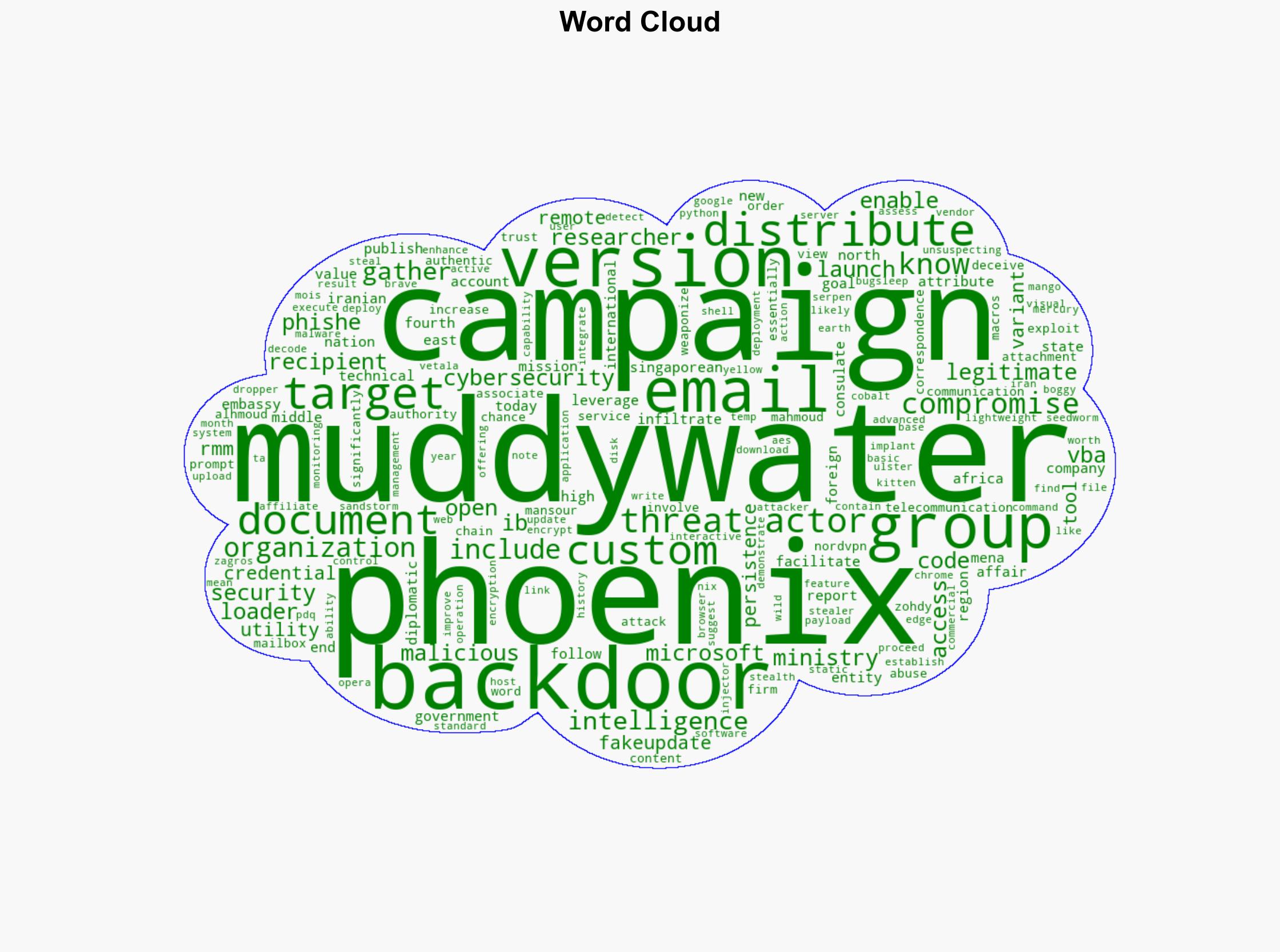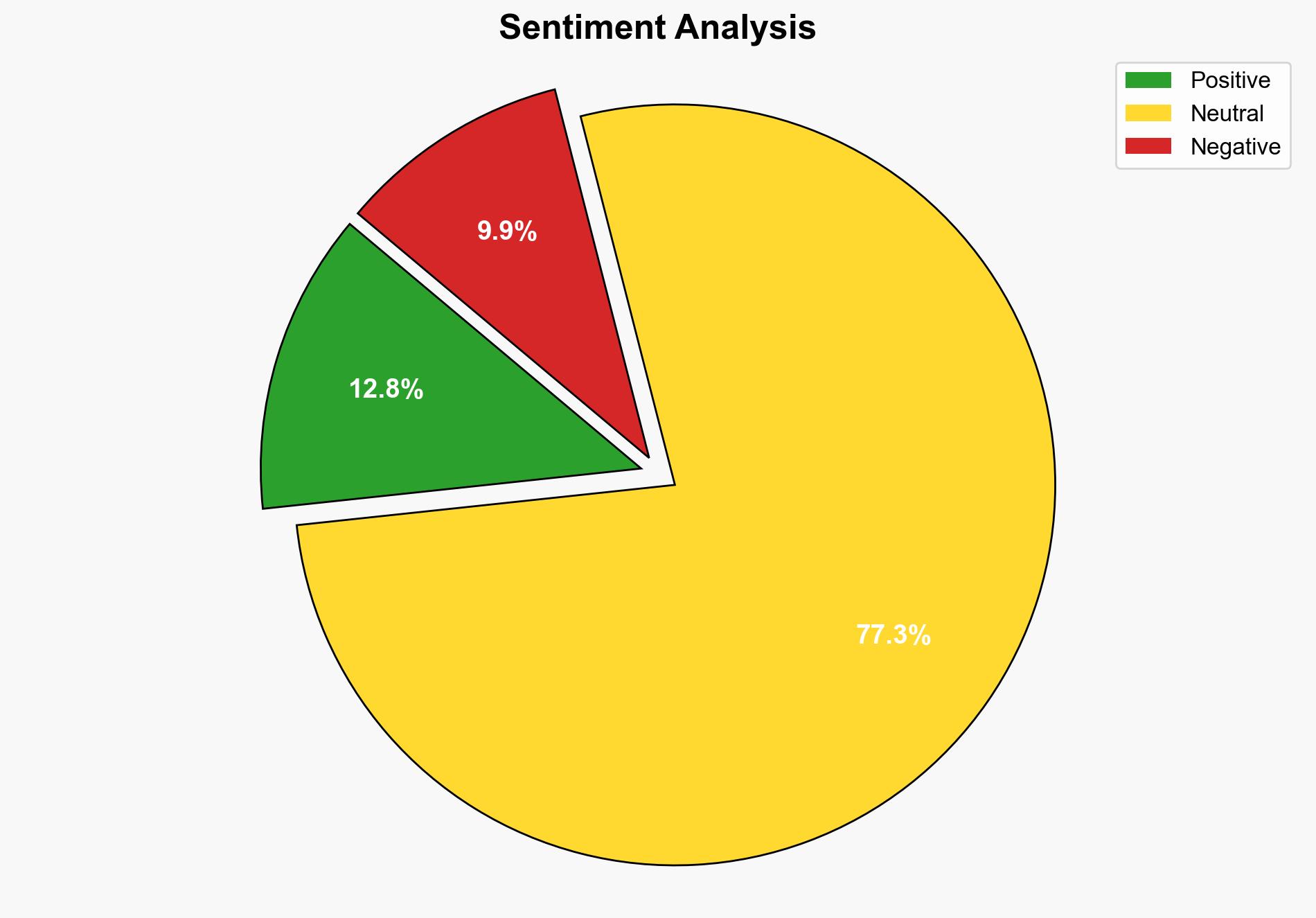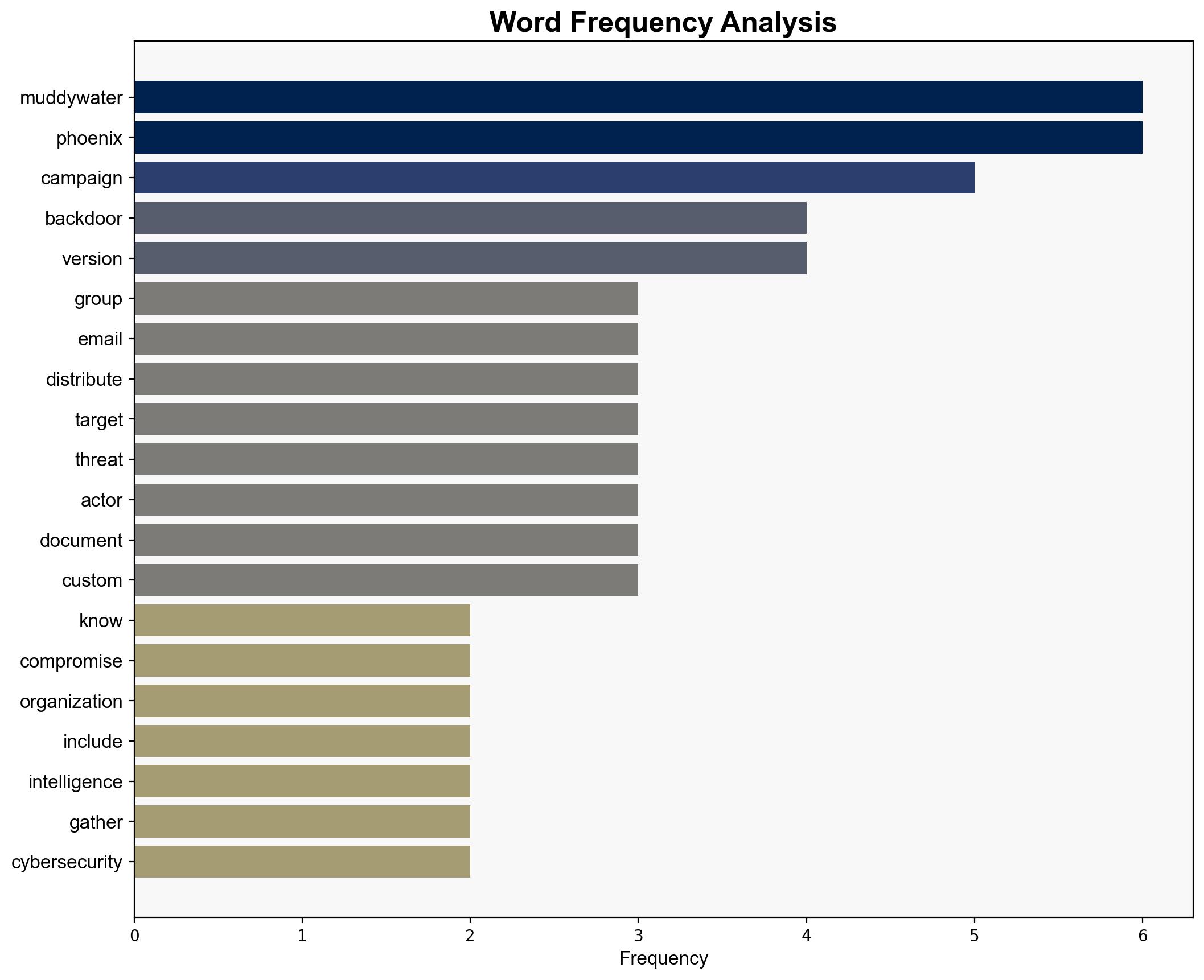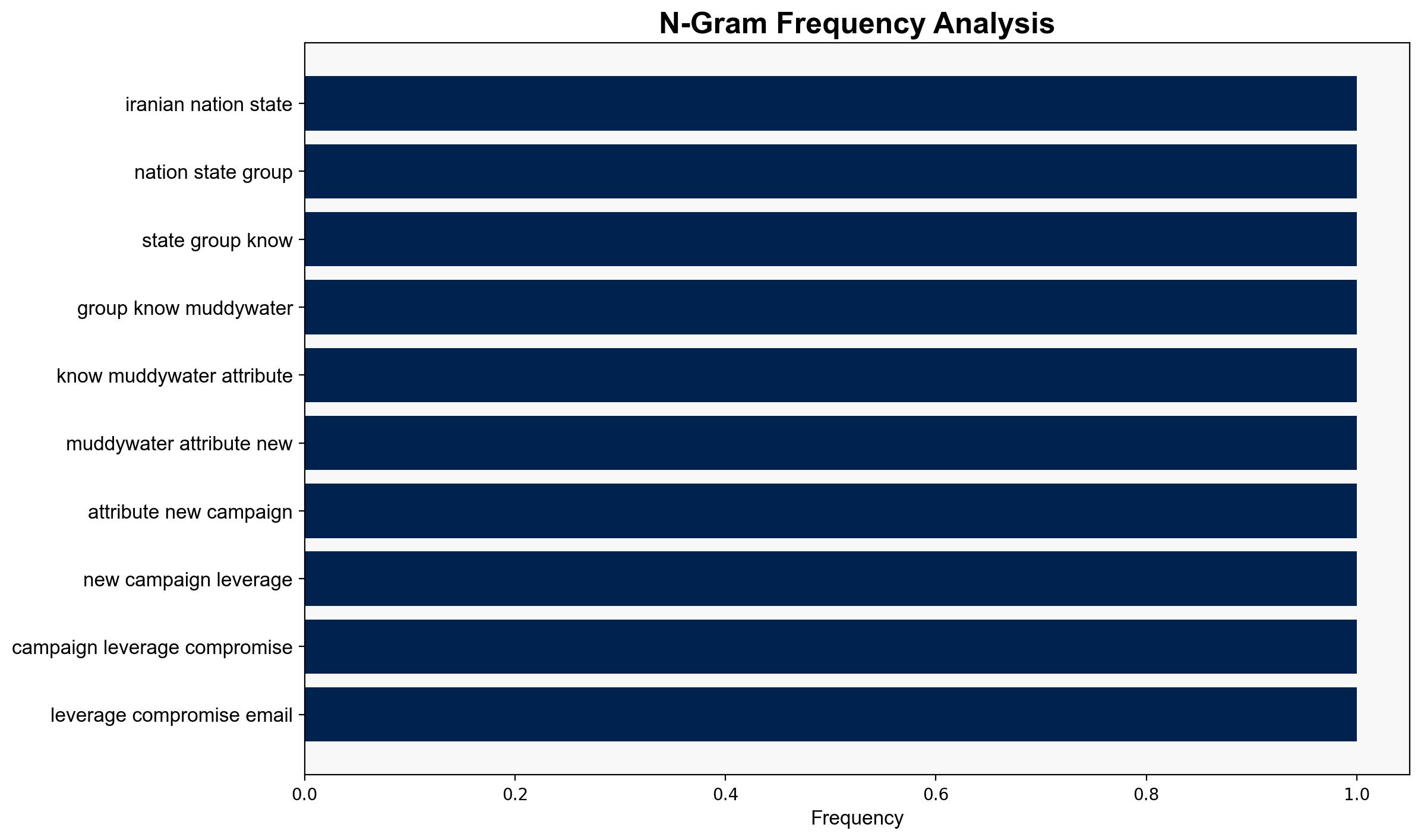Iran-Linked MuddyWater Targets 100 Organisations in Global Espionage Campaign – Internet
Published on: 2025-10-22
Intelligence Report: Iran-Linked MuddyWater Targets 100 Organisations in Global Espionage Campaign – Internet
1. BLUF (Bottom Line Up Front)
The most supported hypothesis is that MuddyWater, an Iranian state-linked group, is conducting a sophisticated espionage campaign targeting high-value entities in the MENA region using advanced malware and social engineering tactics. Confidence level: High. Recommended action: Enhance cybersecurity measures, particularly email security protocols, and increase intelligence sharing among targeted sectors.
2. Competing Hypotheses
Hypothesis 1: MuddyWater is executing a state-sponsored espionage campaign aimed at gathering intelligence from high-value targets in the MENA region to support Iranian geopolitical objectives. This hypothesis is supported by the use of advanced malware, targeting of governmental and diplomatic entities, and the group’s known affiliations with Iran’s Ministry of Intelligence and Security (MOIS).
Hypothesis 2: MuddyWater’s activities are part of a broader cybercrime operation with financial motives, using state-level tactics to maximize impact and evade detection. This hypothesis considers the use of credential-stealing tools and the potential for financial gain through cybercrime.
Using Analysis of Competing Hypotheses (ACH), Hypothesis 1 is better supported due to the alignment of targets with strategic geopolitical interests and the sophistication of the tools used, which are more indicative of state-sponsored activities than typical financially motivated cybercrime.
3. Key Assumptions and Red Flags
Assumptions include the attribution of MuddyWater to Iranian state interests and the assumption that all targeted entities are of high strategic value. Potential biases include confirmation bias towards state-sponsored attribution. Red flags include the lack of direct evidence linking specific attacks to Iranian state directives and the possibility of false flag operations by other actors.
4. Implications and Strategic Risks
The campaign could lead to significant intelligence losses for targeted nations, impacting diplomatic relations and regional stability. There is a risk of escalation if affected countries retaliate or increase cyber defenses, potentially leading to a cyber arms race. Economically, compromised entities may face financial losses and reputational damage.
5. Recommendations and Outlook
- Enhance cybersecurity infrastructure, focusing on email security and employee training to recognize phishing attempts.
- Foster international cooperation and intelligence sharing to better understand and mitigate the threat.
- Scenario Projections:
- Best Case: Increased defenses deter further attacks, and diplomatic efforts reduce tensions.
- Worst Case: Escalation leads to broader cyber conflict involving multiple state actors.
- Most Likely: Continued low-level cyber skirmishes with periodic escalations.
6. Key Individuals and Entities
Mahmoud Zohdy, Mansour Alhmoud, and cybersecurity vendor Group-IB are key entities involved in the analysis and reporting of this campaign.
7. Thematic Tags
national security threats, cybersecurity, counter-terrorism, regional focus




